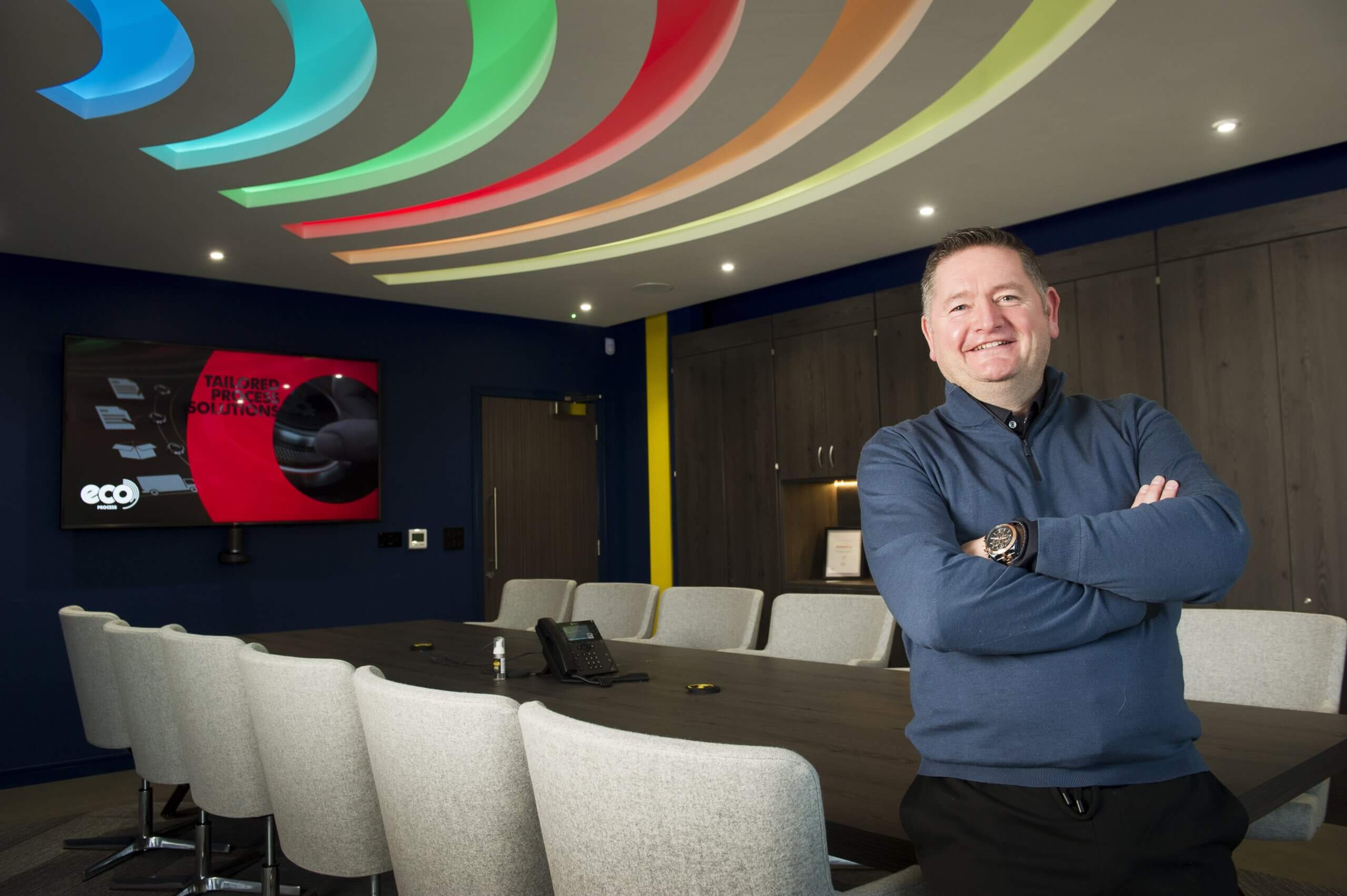
Eco Group is collaborating with Levidian on the ‘first’ remote deployment of LOOP10 system technology in the UK, which will feature integrated hydrogen separation technology, producing hydrogen on site for use in R&D projects across a variety of sectors.
Speaking at the UK’s first ever hydrogen week, Black said, “The ultimate objective is to develop hydrogen hubs which will enable businesses and industry to reduce their carbon footprint through self-producing hydrogen for their own use, which support the decarbonisation of our economy.
“By working on a model of decentralised hydrogen hubs, it accelerates the transition to Net Zero because businesses do not have to rely on the delivery of a national hydrogen pipeline network.”
Levidian’s methane-to-hydrogen and graphene technology is set to be deployed at Eco Group’s headquarters in Annan, Scotland. Levidian will deploy its LOOP10 system, which uses a low-temperature, low-pressure process to crack methane into hydrogen and carbon without the need for catalysts and additives.
Black added, “As a clean, low carbon energy source, hydrogen will play a crucial role in the UK’s transition to Net Zero.
“As a business we have been following the development of this technology for several years and our collaboration with Levidian offers a practical decentralised energy solution for business and industry.
“With the increasing pressures of rising costs, supply chain issues and a challenging labour market, the thought of adding Net Zero to your to-do list can seem overwhelming but it is essential to future-proofing your business.
“By seeing Net Zero as an opportunity rather than a challenge, you can make a positive impact on both the planet and your own business value. It’s not just good business sense, it’s a chance to do business for good and with purpose.”
H2 View has been keeping an eye on Scotland’s hydrogen-based ambitions for decarbonisation. The country last year (2022) unveiled its Hydrogen Action Plan, with aims to have a low-carbon hydrogen production capacity of 5GW by 2030 and 25GW by 2045.